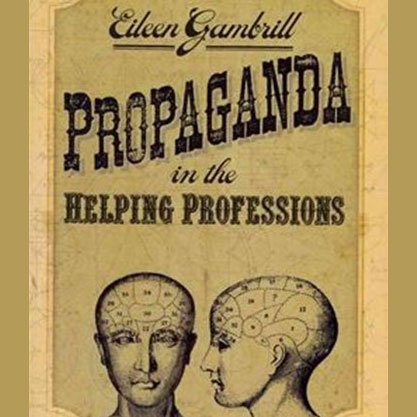10 points from Professor Eileen Gambrill’s talk and ensuing discussion at the recent AHWGO salon.
1. Decisions about our health are emotional decisions. Unless one is an expert in the field one does not know what information is missing and what questions to ask as health decisions are getting increasingly complex.
2. We want to be healthy, normal. What we consider healthy and normal changes over time. How we define what is healthy and normal determines how we get treated if we ‘deviate’.
3. There is a tendency to medicalize problems in living. What once for example was called sin, then crime, is now called mental illness. What once was a difficult child, is now a child with Attention Deficit Disorder.
4. How we name conditions influences the treatment for it by society and potential “cures”. The power of naming is essential.
5. Treatment options are often misrepresented. We are given information on treatment options that might not be transparent or even misleading (benefits of treatments are often presented as more impressive relative risk rather than absolute risk reductions, see http://www.patient.co.uk/health/Risks-of-Disease-Absolute-and-Relative.htm).
6. From kick backs to doctors to improperly promoting drugs to older adult with dementia, big money is at play in an ever growing pharmaceutical market and incentivizes wrong doing despite the recent crack downs on companies that disregard F.D.A. regulations (such as the recent Johnson and Johnson settlement for Risperdal). Especially the aging wave of baby boomer market means a growing market with mental and chronic health issues.
7. What is considered mental illness is largely defined by the Diagnostic and Statistical Manual of Mental Disorders.
8. The UK Database about Uncertainties of the Effects of Treatments (Duet) www.library.nhs.uk/duets/ publishes treatment uncertainties from patients, carers, clinicians, and from research recommendations, covering a wide variety of health problems.
9. The Cochrane Collaboration critically reviews published and unpublished medical literature http://www.cochrane.org/cochrane-reviews.
10. www.criticalthinking.org. We all need it!
What is next? Personal monitoring and measuring, dna testing and a focus on brain research. It seems that we have an increasing influence on our health decisions but also are increasingly subject to propaganda and big money influences.

Propaganda in the Helping Professions Book Cover
